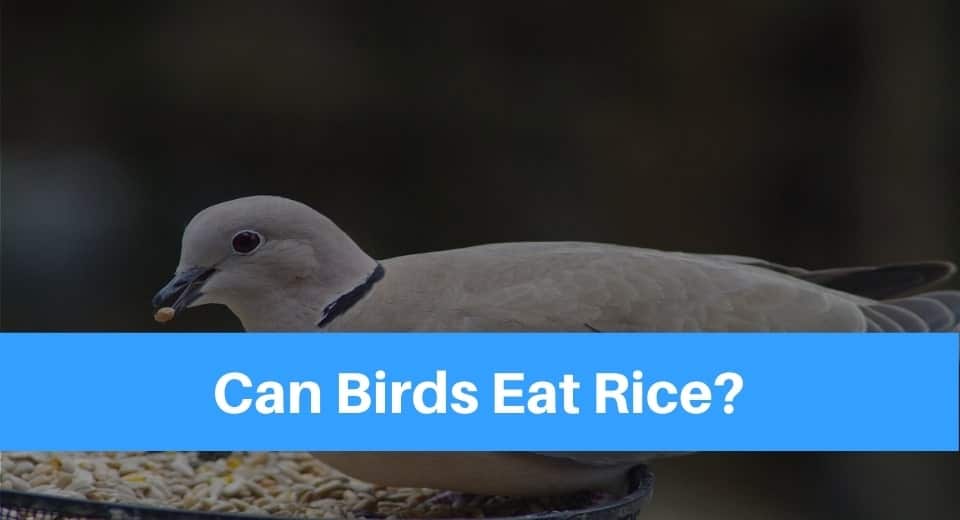Birds are beautiful animals that can be found in virtually every habitat on earth. And that’s why they can easily adjust, they will find any place to be a great hunting locale for foraging for food, including around your home.
The things you throw away, the plants, seeds, and bugs that are around your home, and whatever else they can find make the ideal location for birds to get a meal. This is why they are frequently found around people’s homes.
Wanting to Be a Good Samaritan to Birds
Some find that they don’t want the birds to have to go to too much trouble to find food, so they are happy to provide it to them. They will buy seed or other grains that they can put in a bird feeder or just throw out on their lawn and let the critters have at it.
In the absence of seed, many look to find alternative solutions to providing food for these creatures. One option that they look to choose is rice, but there is a lot of discussion as to whether this is a good solution or not. There are many ideas on the internet about whether feeding rice to birds is a good idea or not. So this begs the question, can birds eat rice?
Can I Feed Birds Rice?
The straightforward answer to this question is yes, but we will add that this answer is a little more complicated than a simple yes or no answer. So, a little explanation is in order.
Is Cooked Rice Acceptable for Birds to Eat?
First of all, cooked rice is the preferred choice of birds. The reason is quite simple. It is much easier for them to digest, so they prefer to eat that over uncooked rice. It is also the case with raisins. It does not matter if you are talking about brown or white rice, if it is cooked they love it.
If you decide to give them cooked rice, then be aware you should simply boil or steam it. Many try to get fancy with what they are serving and this can do more harm than good. Birds need just a very simply cooked rice where only water is used. You can add a small amount of butter, but it is not really necessary. Salt and other spices are not recommended.
You should be sure that you allow the rice to cool before giving it the birds. Heating rice may cause problems for the birds throat and digestive tract, so this should be avoided.
Is Uncooked Rice Acceptable For Birds to Eat?
So, what about uncooked rice? The fact is that this is just as good for birds. In fact, some birds prefer uncooked rice to cooked rice, including pigeons, doves, and pheasants. They like the texture more for some reason, and enjoy it better. Another good option for birds is eating popcorn.
Smaller birds find uncooked rice more difficult to chew, and so it is likely that they will not eat it. If your goal is to provide a nourishing meal to the birds, and they are unable to eat it then you have really done yourself no good at all.
The Myth About Birds and Rice
Now, let’s dispel a common myth that is running around in relation to birds being able to eat rice. There are many places you will find on the web where they will tell you that eating rice, especially uncooked rice, is unhealthy for birds because it will expand in their stomachs and can cause them to die. This is a myth and has no substance to it at all.
Think about it for a moment. If this was true that you would see this with a wide variety of animals, including human beings. You don’t see other animals dying from eating rice, even uncooked rice, and so why would birds.
Also, consider how much rice expands when it is cooked. Really, it only adds a small amount of mass and that is just water. It doesn’t really expand enough to truly effect the digestive tract, even in a bird. This is just one of those old wive’s tales that has been taught for so long that people believe it as truth now, but there is no truth to it at all.
Now you can have peace of mind that you are not causing any problems for a bird if you feed it rice. So go ahead, and provide a hearty meal.
More pages:

